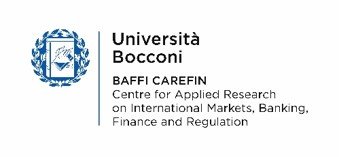

WebEx


More than one year of COVID-containment measures have yielded a rich collection of practical experiences across the globe. The measures adopted evolved through learning-by-doing, also peer-learning played a role. While containment measures were initially focusing on the preservation of public physical health (“whatever the cost”), tradeoffs with economic costs, civil liberties, children’s education and mental wellbeing moved increasingly in the focus later on. Furthermore, resource scarcity and challenges of their employment and distribution have substantially constrained the choice of containment decisions (initially masks, FFP2 masks, tests, vaccinations). Finally, diminishing public acceptance of containment measures has influenced the effectiveness of measures over time. Bearing in mind that an assessment of “effectiveness” and “efficiency” requires a clear view on the underlying aim(s) of measures, this workshop provides an overview of existing state-of-the-art theoretical and empirical research as well as practical experiences of what has so far emerged to work best.
Scientific committee: Ernest Gnan, OeNB and SUERF; Peter Klimek, Medical University of Vienna and CSH Vienna; Martin Schneider, OeNB; Stefan Thurner, CSH Vienna; Klaus Vondra, OeNB.
Tracking COVID-19 government containment measures: lessons after one year
Anna Petherick, Departmental Lecturer in Public Policy, Blavatnik School of Government, Oxford University presentationRanking the effectiveness of worldwide COVID-19 government interventions
Stefan Thurner, President of the CSH Vienna & CSH Faculty presentationAn Epidemiological Model with International Production Networks
Sebnem Kalemli-Ozcan, Neil Moskowitz Professor of Economic, University of Maryland, NBER and CEPR presentationNine stylized facts on the great lockdown
Antonio Spilimbergo, Deputy Director, Research Department, IMF presentationWalking the tightrope: Avoiding a lockdown while containing the virus
Luiz De Mello, Director, Policy Studies Branch, Economics Department, OECD presentationCovid-19: Policy with trade-offs
David Miles, CBE, Professor of Financial Economics, Imperial College London presentationZero Covid: Fewer deaths and much less contraction in GDP
Cécile Philippe, Institut économique Molinari presentation